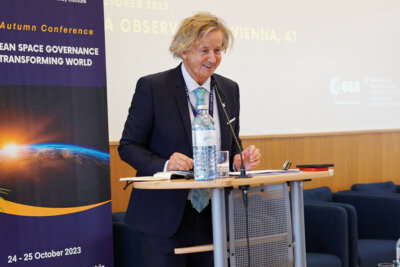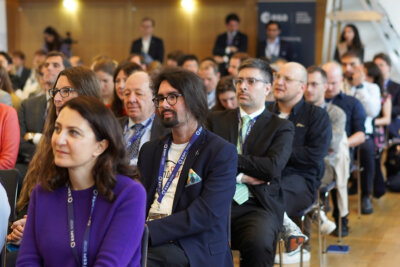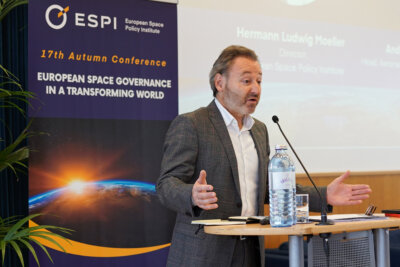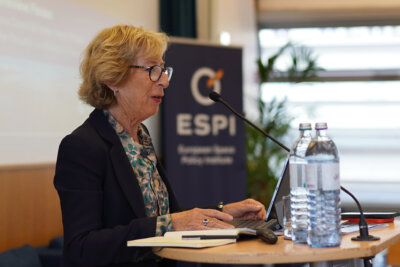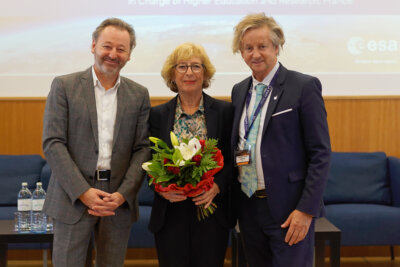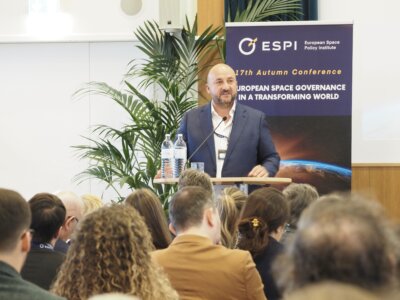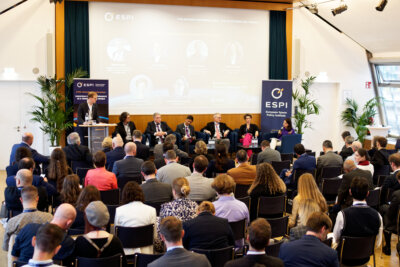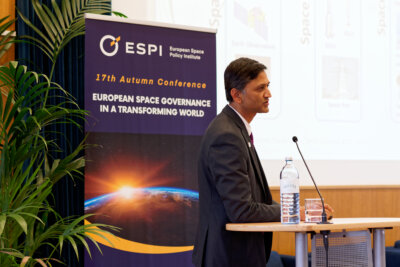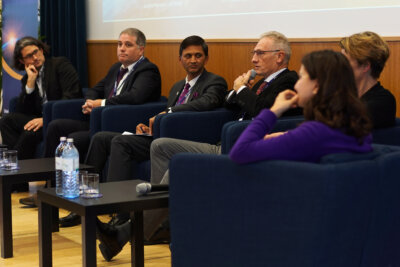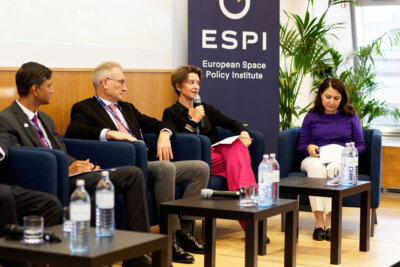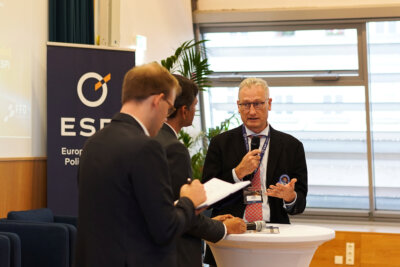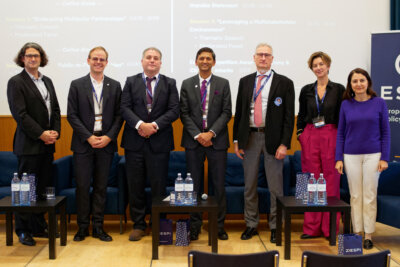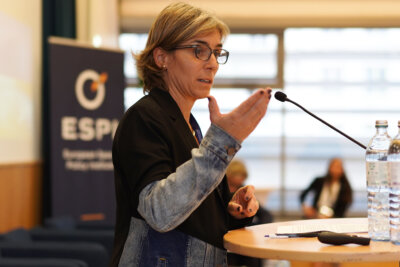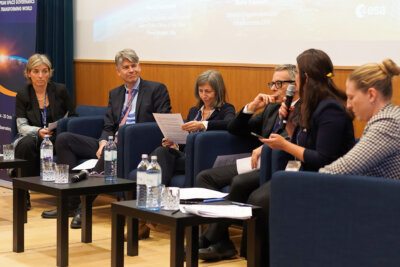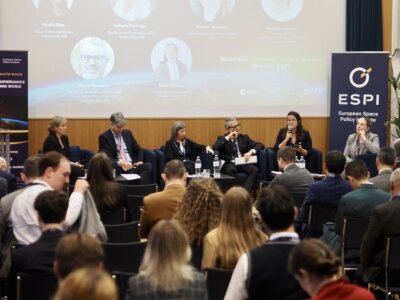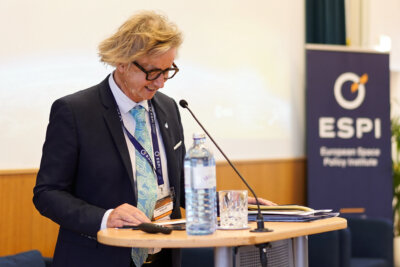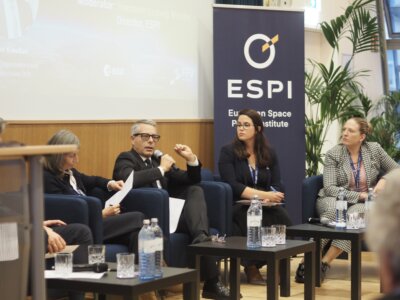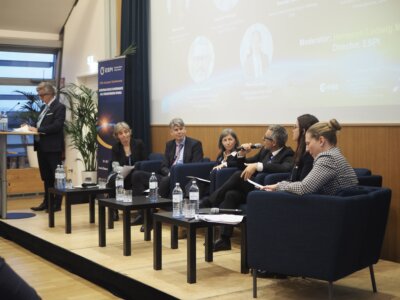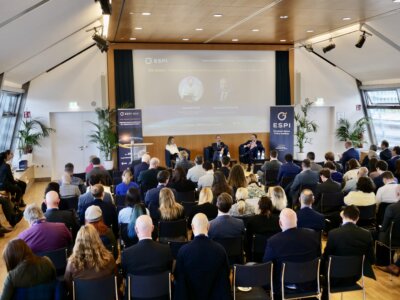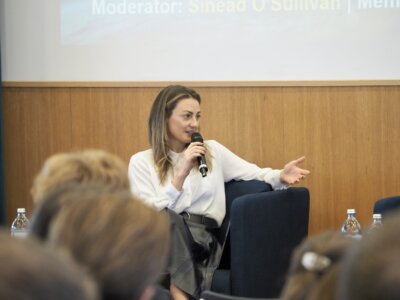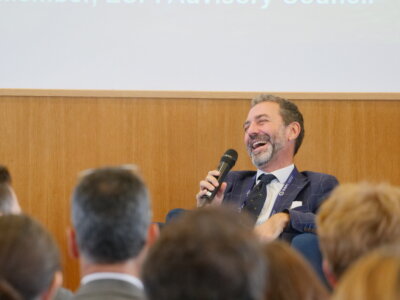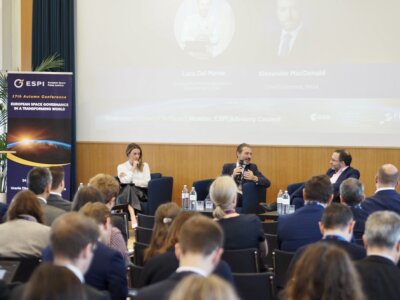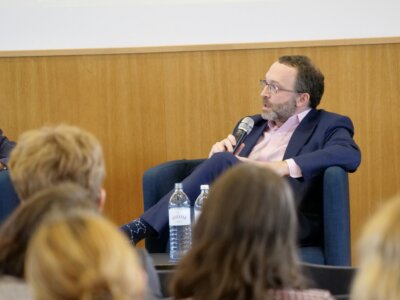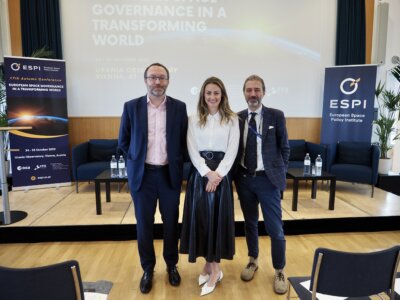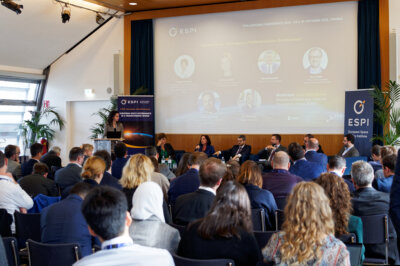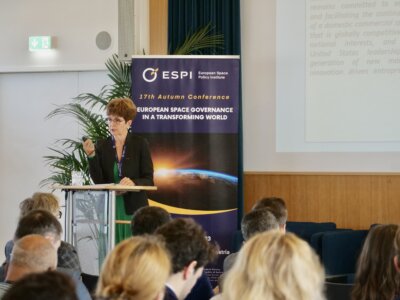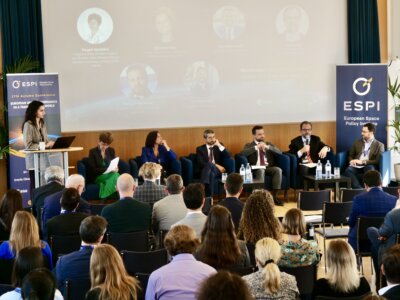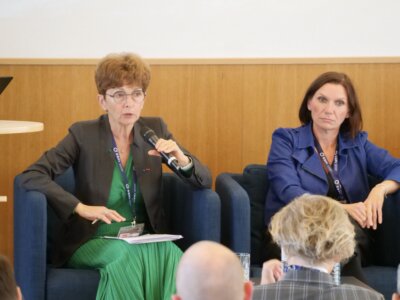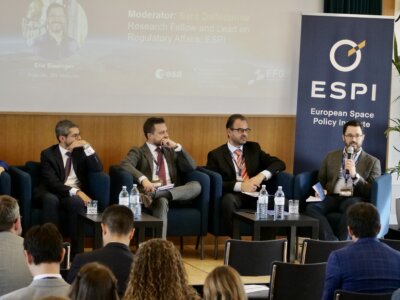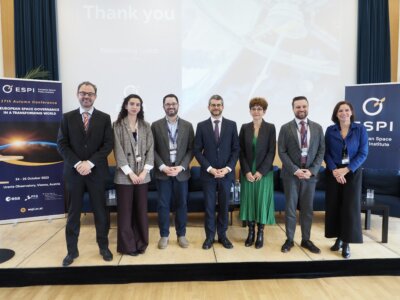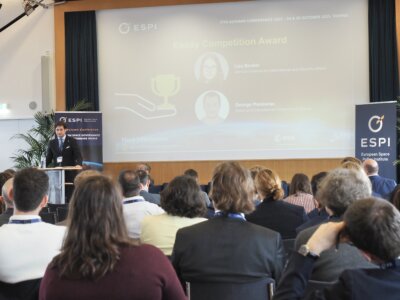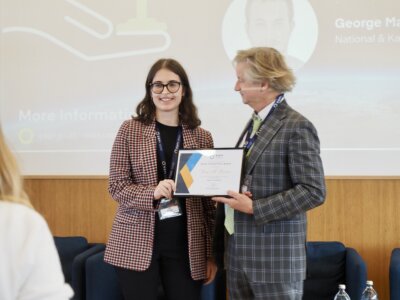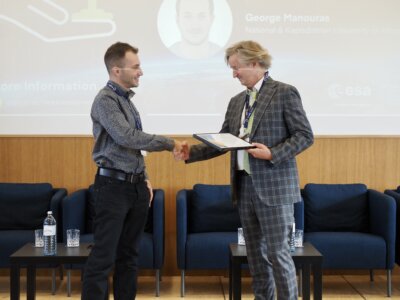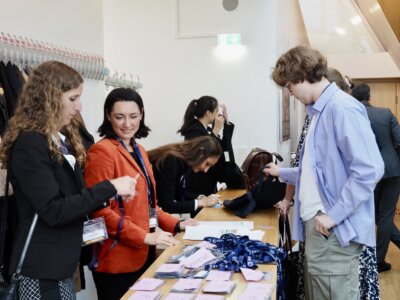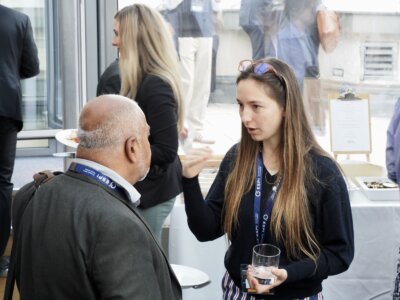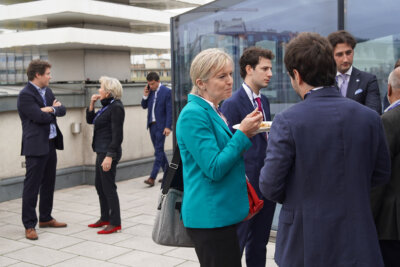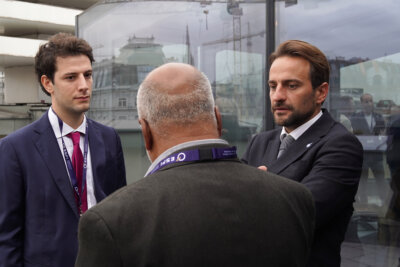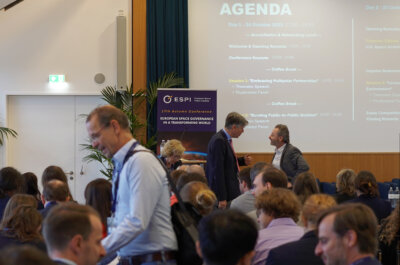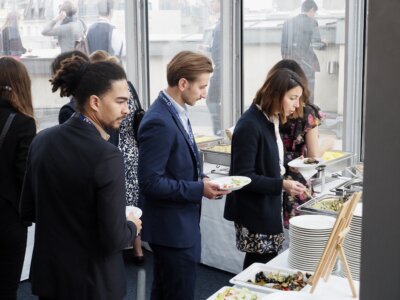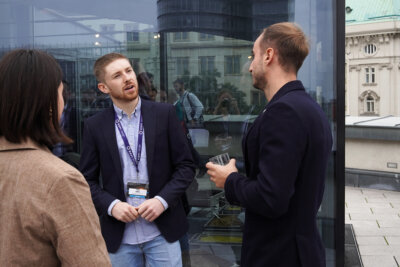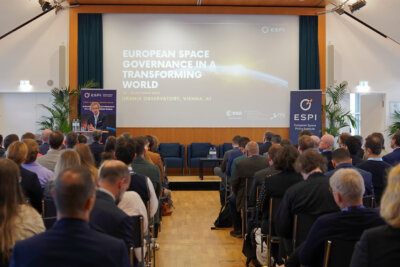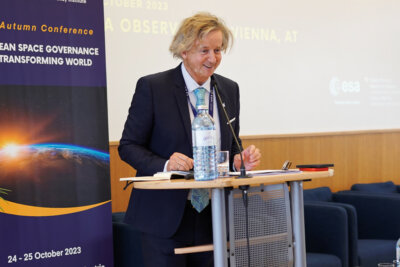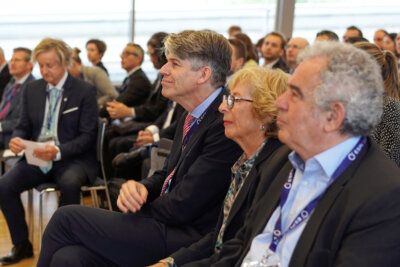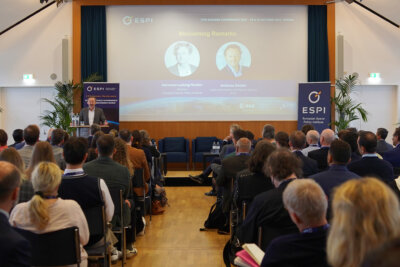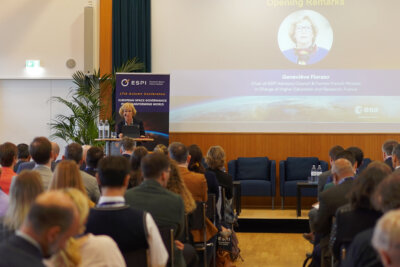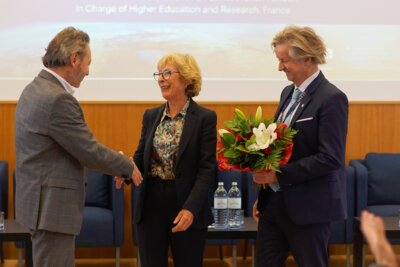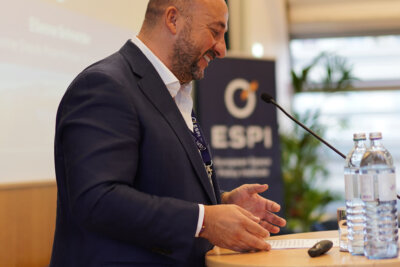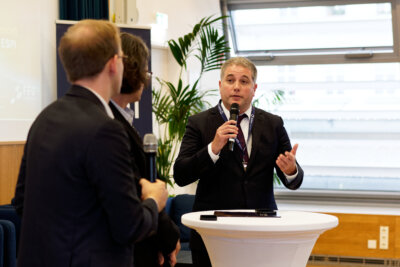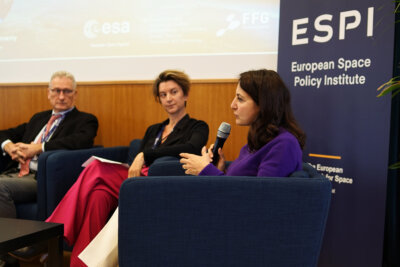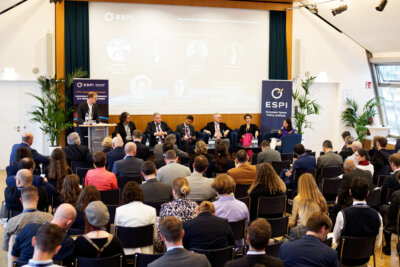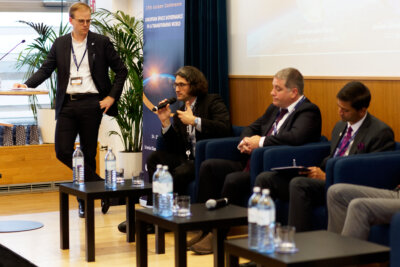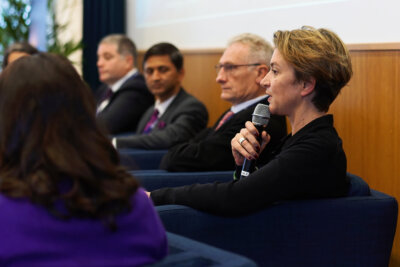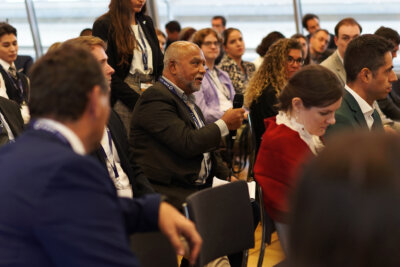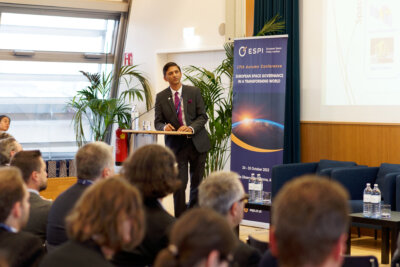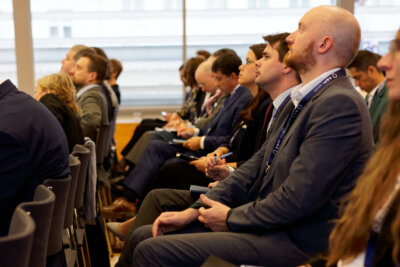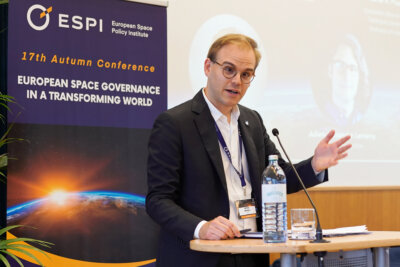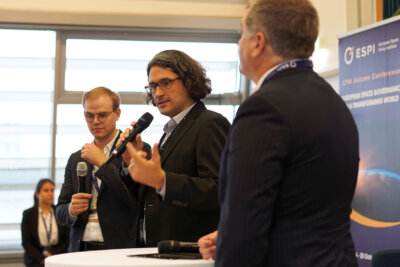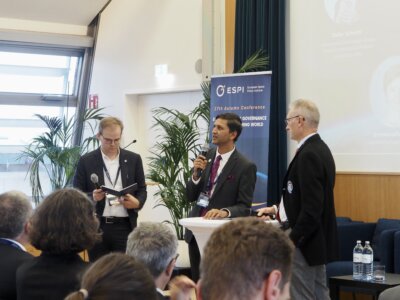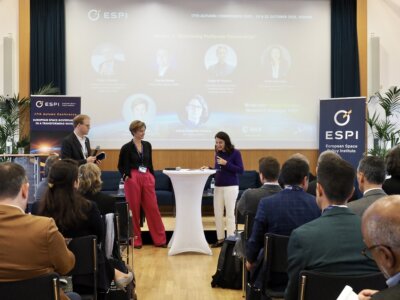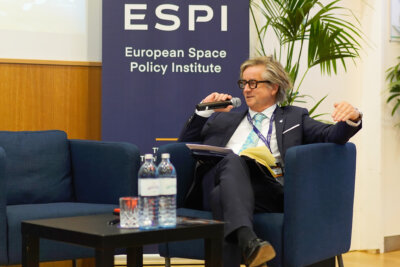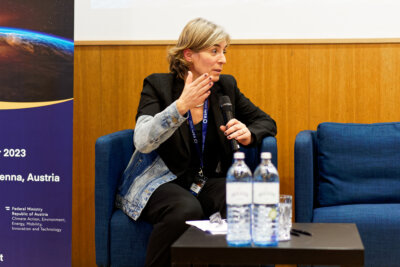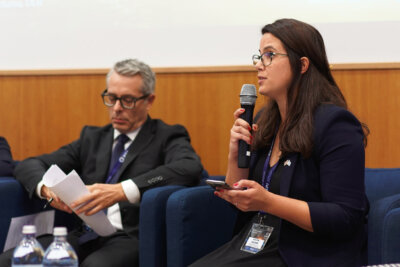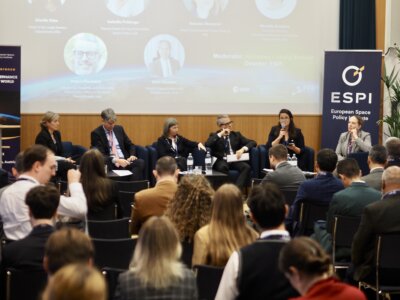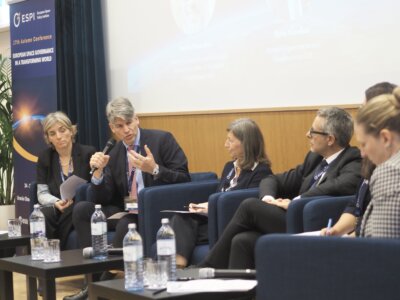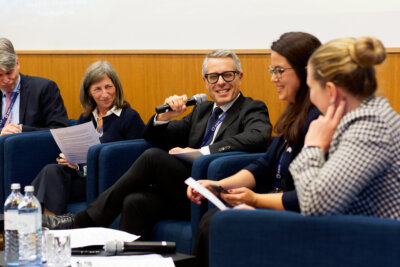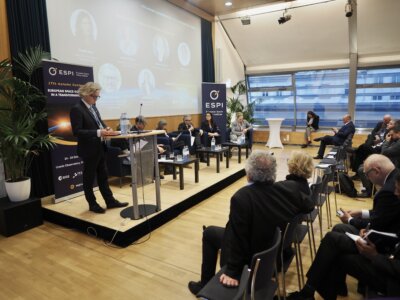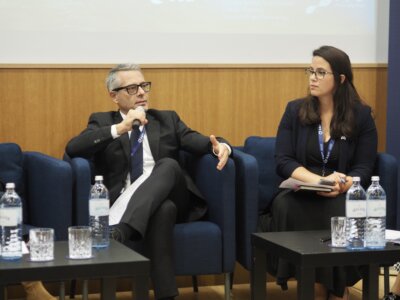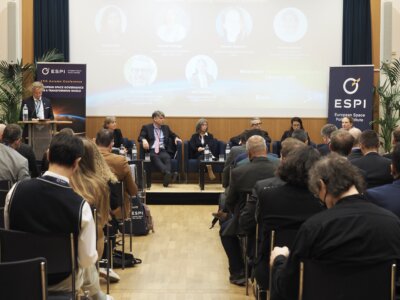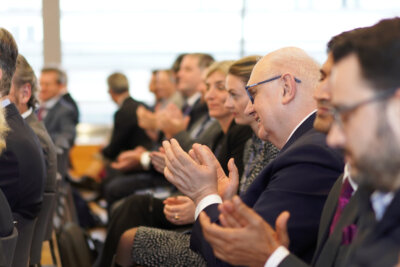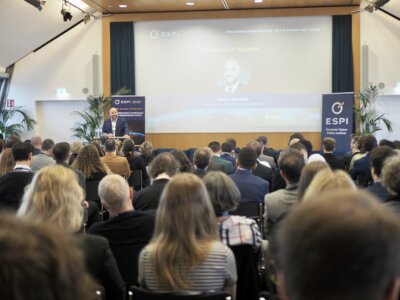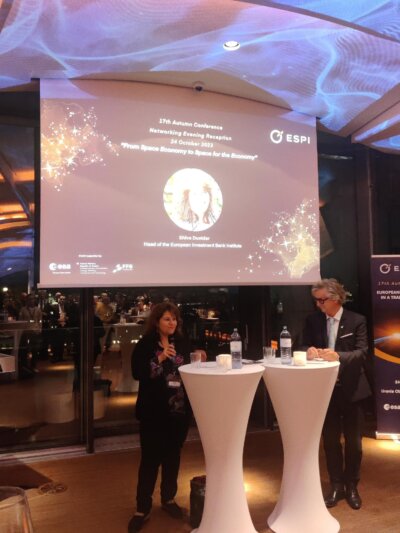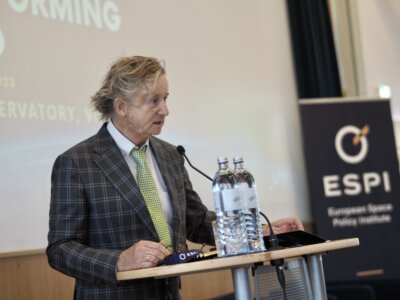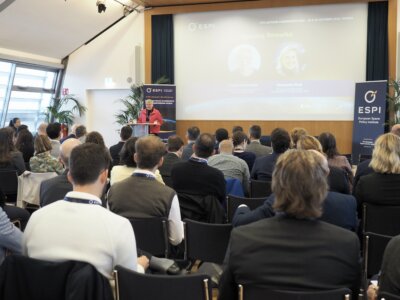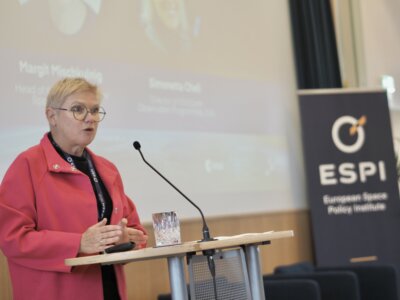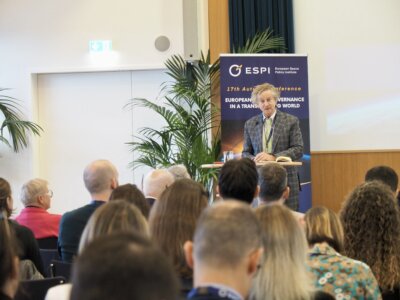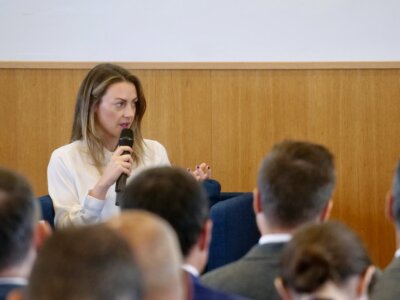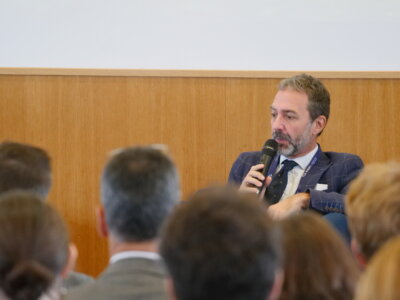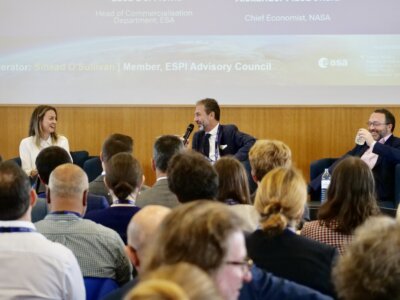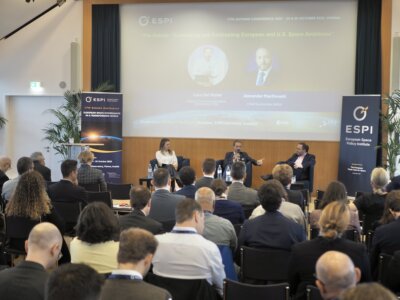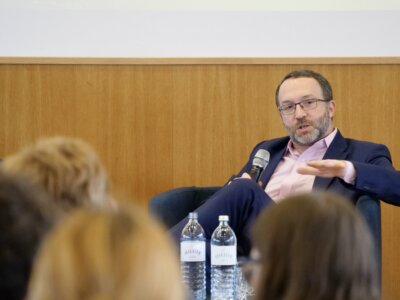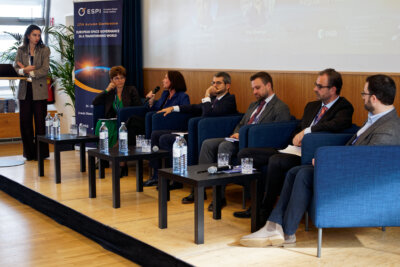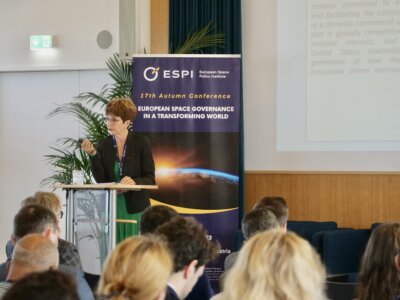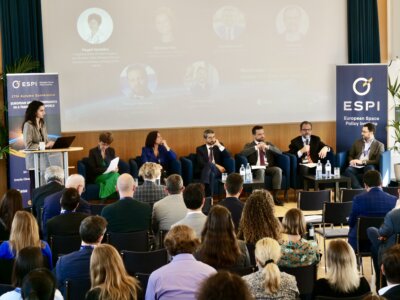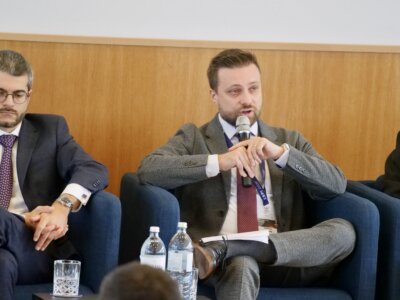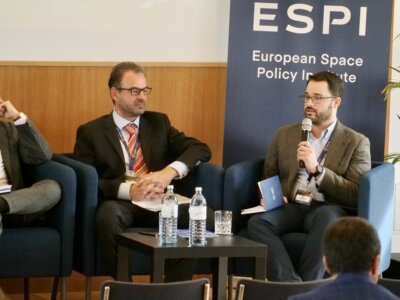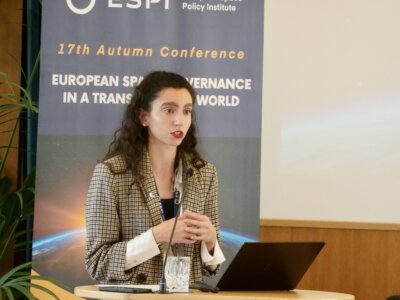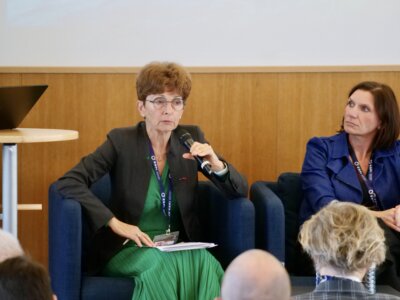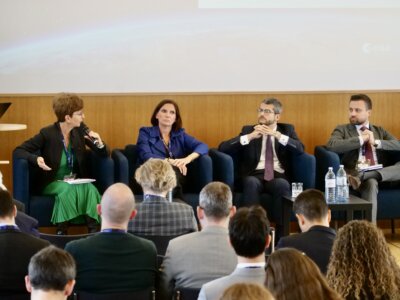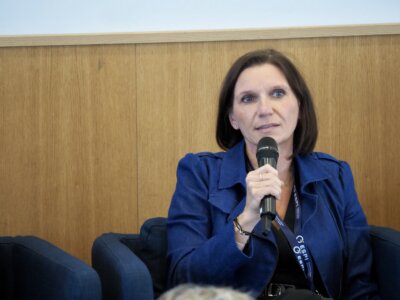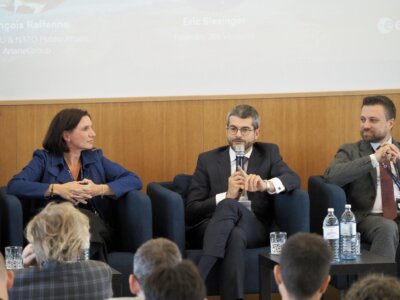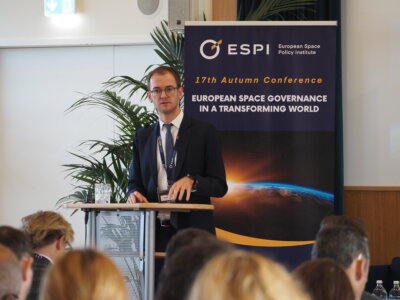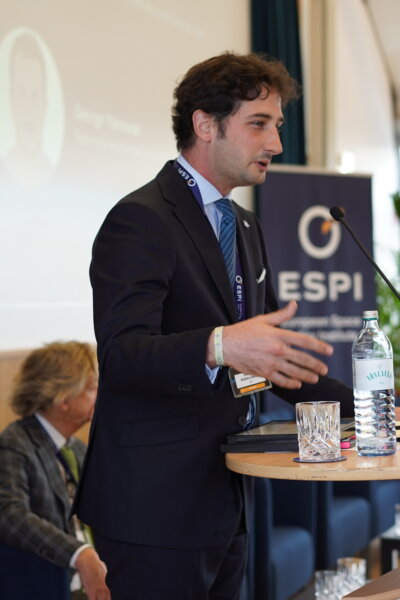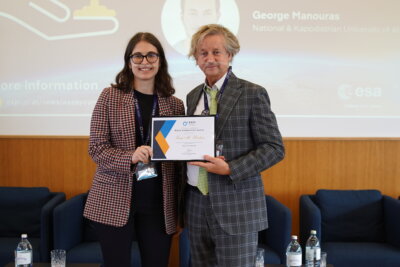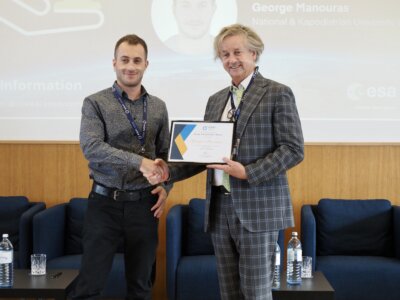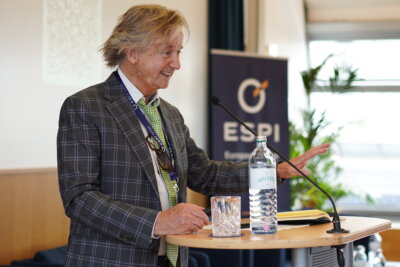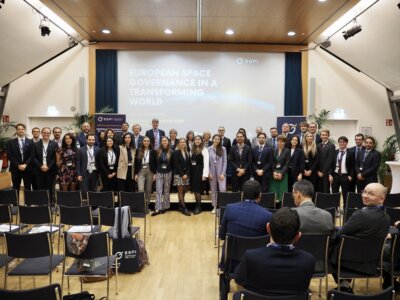In the Urania Observatory of Vienna, Austria, ESPI recently concluded its 17th Autumn Conference on 24 and 25 October 2023. With a gathering of prominent European and international stakeholders, the conference’s theme, “European Space Governance in a Transforming World,” was an apt reflection of the key challenges and opportunities within the space industry. Throughout the course of the two days, participants experienced engaging panel discussions and networking activities, with the event offering a panoramic view of the future of European space governance.
You can find the full document of the 17th Autumn Conference Key Takeaways here.
The Conference welcomed almost 200 guests from over 45 countries, representing all sectors.
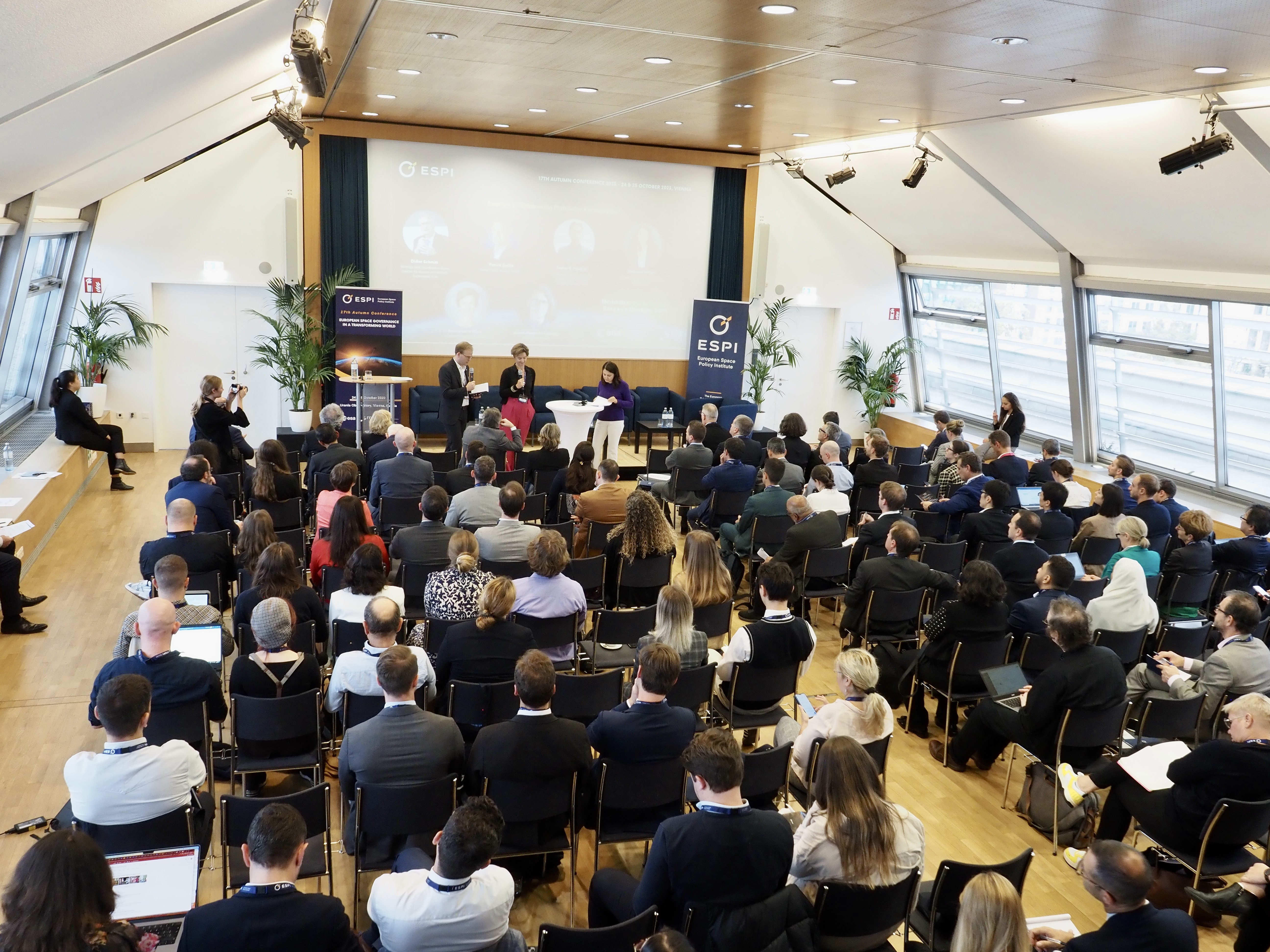
The conference opened with opening remarks by Hermann Ludwig Moeller, Director of ESPI, who emphasised the ambition of the European space sector, and recalled the ESPI’s 2040 Vision. A notable address from the outgoing Chair of ESPI Advisory Council, Genevieve Fioraso, reflected on her tenure as Chair and the need for risk and ambition within Europe. With participants representing a wide spectrum of expertise in the space sector, the keynote address, delivered by Etienne Schneider, incoming Chair of ESPI Advisory Council and Former Deputy Prime Minister of Luxembourg, set the tone for the conference. Schneider’s insights into a wake up call for Europe, with a new governance needed to embrace the challenge, were compelling.
The first panel of the conference, “Embracing Multipolar Partnerships,” dove into the rapidly evolving dynamics of global space partnerships. The panel, comprising of experts from leading organisations in both industry and public institutions with both European and International perspectives, examined how Europe can strategically position itself in an increasingly competitive and diverse space environment. It was evident that bold ambitions and timely decisions by European leaders and industry are essential to elevate Europe’s strategic prominence, with the discourse around how this environment is changing, and in several directions with increased commercial interest, a key highlight.
The second session, titled “Bursting the Public-to-Public Bubbles,” unpacked the space governance ecosystem. Various stakeholders from public institutions, including ESA, the EU, and their Member States, as well as the industry side, contributed to the session. The panellist highlighted an increasing need for enhanced coordination to overcome policy and regulatory fragmentation. The panel emphasised the importance of improved coordination, cooperation, and harnessing dual-use technologies to unlock the full potential of the European space sector. The discussion centred around how we can serve a broader set of European policy objectives, whilst seeking to secure strategic capabilities.
The second day of the conference began with opening remarks by Margit Mischkulnig, Head of the Department for Space Affairs at the Federal Ministry of Climate Action, Energy, Mobility, Innovation and Technology (BMK).
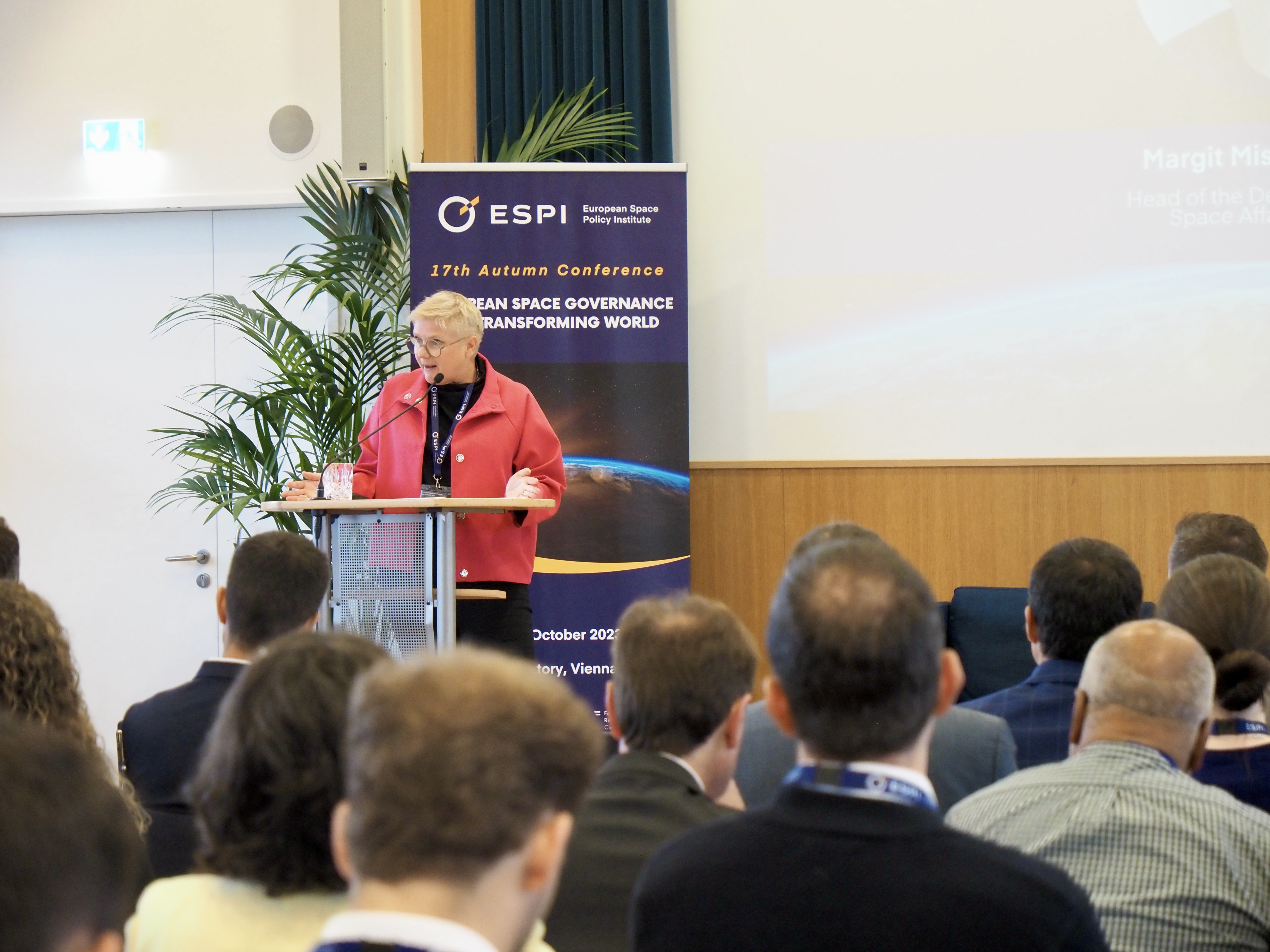
This was followed by a stimulating panel on the space ambitions of Europe and the United States. The speakers, Luca Del Monte, Head of the Commercialisation Department of ESA and Alexander MacDonald, Chief Economist of NASA, engaged in a thoughtful debate on the differing approaches to strategic goals, competitiveness, and commercialisation.
A timely Impulse Statement by Aleix Megias Homer, COO and co-founder of Open Cosmos, on the “Agents of Change: A business perspective on the role of public actors” highlighted the major demands between private and public actors to share equity, risk, and ventures.
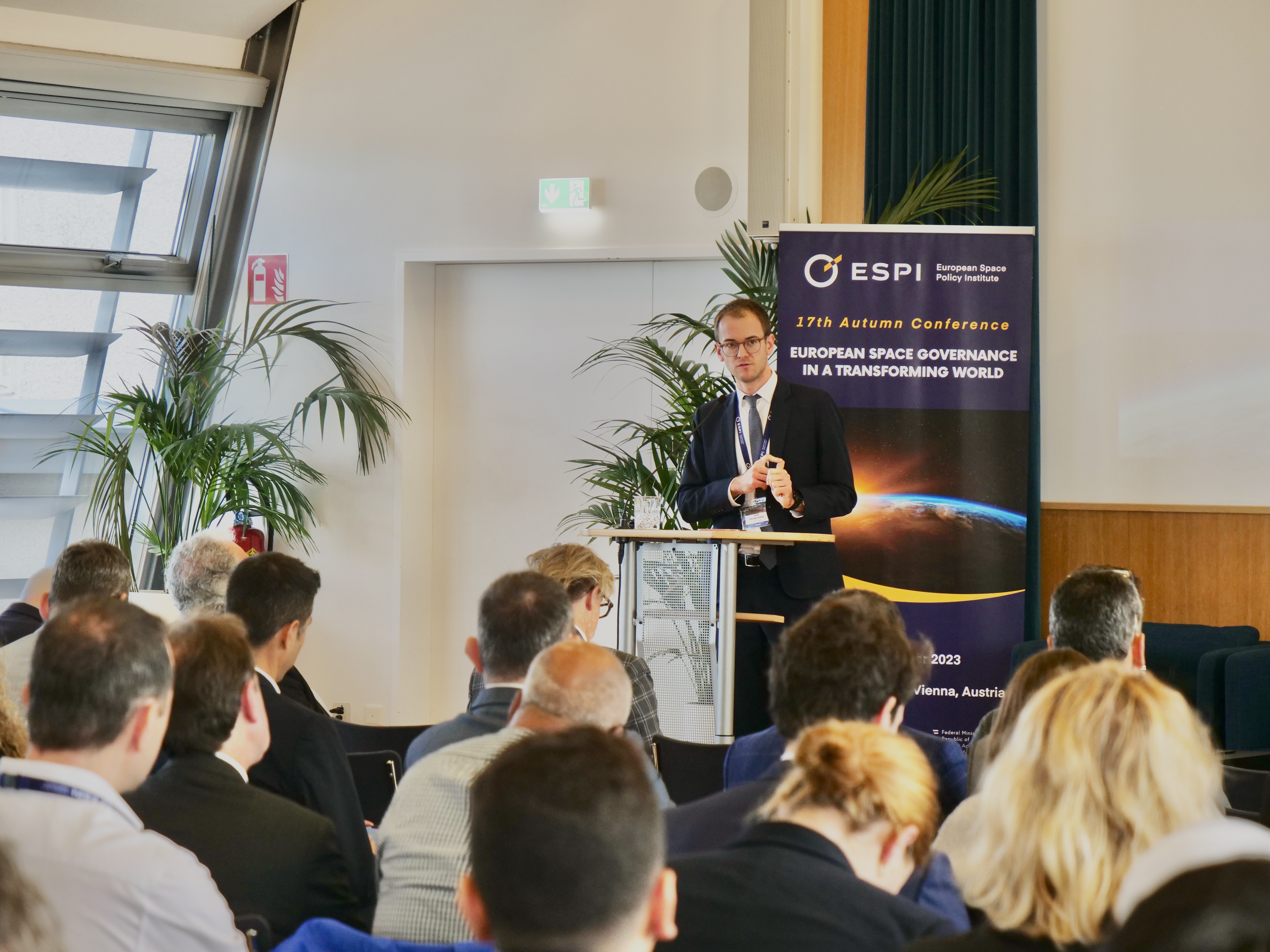
Finally, the last session, “Leveraging a Multistakeholder Environment,” provided insights into the changing landscape of public-private relations in the space sector. With an increasingly multifaceted environment of established and emerging actors, and diverse user communities, navigating this landscape is crucial for the development of industrial capabilities, innovation, and competitiveness in global markets. This introspective session called for better-defined priorities, roles, and responsibilities among these institutional bodies, with particular interest of how the European role can be developed.
The conference concluded with the presentation of the first Essay Competition Award for excellent research from young minds across Europe concerning space policy and the industry. The two winners Lisa Becker and George Manouras, were announced.
Additional details about the conference, programme, and speakers can be found at the following link: 17th ESPI Autumn Conference – ESPI.
For those interested in more information or details about the next Autumn Conference, you can pre-register at the following link: 18th ESPI Autumn Conference or contact ESPI at events@espi.or.at.
ESPI would like to thank the European Space Agency (ESA), the Federal Ministry Republic of Austria Climate Action, Environment, Energy, Mobility, Innovation, and Technology (BMK), and the Austrian Research Promotion Agency (FFG) for their support of the Autumn Conference.
A selection of photos from this year’s Autumn Conference can be found below:

